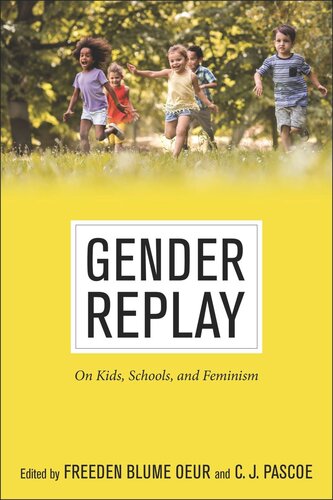

Most ebook files are in PDF format, so you can easily read them using various software such as Foxit Reader or directly on the Google Chrome browser.
Some ebook files are released by publishers in other formats such as .awz, .mobi, .epub, .fb2, etc. You may need to install specific software to read these formats on mobile/PC, such as Calibre.
Please read the tutorial at this link: https://ebookbell.com/faq
We offer FREE conversion to the popular formats you request; however, this may take some time. Therefore, right after payment, please email us, and we will try to provide the service as quickly as possible.
For some exceptional file formats or broken links (if any), please refrain from opening any disputes. Instead, email us first, and we will try to assist within a maximum of 6 hours.
EbookBell Team

0.0
0 reviewsThe first book-length critical reception of Barrie Thorne’s classic book, Gender Play
Barrie Thorne’s Gender Play was a landmark study of the social worlds of primary school children that sparked a paradigm shift in our understanding of how kids and the adults around them contest and reinforce gender boundaries. Thirty years later, Gender Replay celebrates and reflects on this classic, extending Thorne’s scholarship into a new and different generation.
Freeden Blume Oeur and C. J. Pascoe’s new volume brings together many of the foremost scholars on youth from an array of disciplines, including sociology, childhood studies, education, gender studies, and communication studies. Together, these scholars reflect on many contemporary issues that were not covered in Thorne’s original text, exploring new dimensions of schooling, the sociology of gender, social media, and feminist theory. Over fourteen essays, the authors touch on topics such as youth resistance in the Trump era; girls and technology; the use of play to challenge oppressive racial regimes; youth activism against climate change; the importance of taking kids seriously as social actors; and mentoring as a form of feminist praxis. Gender Replay picks up where Thorne’s text left off, doing the vital work of applying her teachings to a transformed world and to new configurations of childhood.